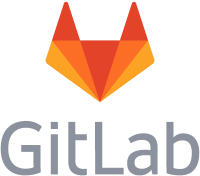by Philippe Magne
When we first heard the term “DevOps” and the buzz it was generating, we asked ourselves whether it was just another case of reinventing the wheel. It’s common in our business that a hot new term signifies an evolution, rather than a revolution. And DevOps is a good example. The advantage of a new wave such as this one is that it impacts a much wider audience, and especially upper management, who have ultimate control over where budget is spent – which is good news in itself. For the first time in 25 years, my bank manager will at last understand what our business is about. That’s something!
To put it simply: digital transformation – internet creates new business opportunities, especially since the entire world (or nearly) is now connected. This phenomenon spawns new enterprises which, when they exceed a market capitalization of 1 billion are labelled “unicorns” and overturn established business models. And the secret to success in these companies? Highly agile methods in IT, and the ability to evolve extremely rapidly according to the needs of the business. This is where the concept of DevOps comes in. The promise of delivering software at high speed, with minimum risk, and the least disruption in production.
Looked at this way, it’s easy to understand why companies that are not unicorns have thrown themselves into this highly promising strategy, which in reality, is no more no less than a repackaging of practices that have been going on for a long time already in the IBM i world.
Here lies the paradox: the IBM i world has been practicing DevOps since time immemorial. It’s for this reason that applications originated 20 or 30 years ago are still with us. Because most of them (not all of course), have adapted to the needs of the business. Some would have imagined that the advent of Web interfaces would sound their death knell. All to the contrary. Instead, they have brought us the luxury of a rich interface practically identical to that of a full web application.
Back to the concept of DevOps. As we mentioned, the secret of DevOps is in its ability to deliver rapidly and without risk. The principles of continuous deployment are central to DevOps. This is why – two years ago – we created our DROPS Software subsidiary, specifically dedicated to this activity.
DROPS differentiates itself on the market as one of the very rare products that can claim to support all platforms on the market, including mainframe. DROPS also inherits functionality and added value from our original platform, the IBM i, such as the rollback of database components.
The success of DROPS also lies in its ability to integrate in a wide portfolio of tools such as SVN or Git for source code management, Jenkins for continuous integration, JIRA or TFS for collaborative tooling. DROPS brings a natural structure to an activity all too often carried out in a “do it yourself” fashion, without any security or reliability guarantees. It professionalizes the final phase in application change that is by far the most critical: the transfer to production. If any errors arise during this phase, the image of the entire IT department is at stake. All of our DROPS clients have confirmed to us the highly strategic and operational nature of the tooling.
I can’t go far enough in inciting your interest in the new version 2.4 of this product that has just been released. It is the culmination of all the technical expertise and knowhow that we have built up for nearly 25 years now.

REQUEST A DEMO
Let’s talk about your project!
Speak with an expert


























